Experience in a 3D visualization studio in Budapest
1. Tell us a little about yourself

Hello everyone, my name is Lera, I'm from Kyiv. I have been professionally engaged in architectural 3d visualization for three years. I worked 3-4 years as an architect before that.
When I was little, I loved watching programs about repairs and interior design and dreamed about doing the same. When I was 13-14 years old, I found out that the best thing would be to study for an architect. I later discovered that I could focus on interior design.
Since I decided early on my specialty, at first I decided to go after the 9th grade to a construction college (KCCAD) for an architectural department, and then take a look:). So, it happened, at first I graduated from college and then entered the KCEI (KNUCA).
In the process of learning, I realized that I made the right decision, that architecture is my specialty. I was able to realize my technician self and be creative successfully :).
Unfortunately, in Kyiv, after graduating from college, you enter the first year of the university. As an option, it was possible to go to university in other cities or to MAU for the second year immediately, which I did not want. And in the second year of university, I actively began to study such programs as ArchiCad, AutoCad, Revit, and, of course, 3ds Max and Photoshop.
I began to work actively as an architect during my last years at the university and gradually grew to work as a leading architect. My main projects were business centers and residential complexes, some of them have already been implemented in Kyiv or in the process of construction.

2. How did you learn architectural visualization?
During my training, the matter of archiving was always relevant, but at that time 3dsmax scared me because of its complexity, and there was not yet so much open information on the net.
I gave 3dsmax a second chance before defending my graduation project, where I had to make a 3d visualization of a high-rise building of a business center. And literally, in one or two months, I quickly reviewed a lot of video lessons on YouTube and was able to easily perform visualizations (at that time, Kupriyanenko's lessons were the main open information).
It was a challenge :) The building was a high-rise, and after exporting from Archikad, I still did not understand what it means to clean the model and use xref. But the result was very cool and I successfully defended my project.
After that, I realized that it is much more interesting and exciting for me to make 3d visualizations than to do project management and work.
A few months later, I decided to take courses and improve my level of visualization. I chose Kupriyanenko's courses (2018) and graduated with two beautiful pictures :) After that, in just a couple of months, I updated my portfolio with a few more pictures but still continued to work as a lead architect.
3. Why did you decide to go to another country? What were your goals?
Why I decided to leave ... this is a difficult question for me. I wanted a higher standard of living, more salary, prospects, security, etc.
I stopped seeing myself as an architect in Kyiv. I had already reached my ceiling in salary. The employer was not ready to pay more (25 thousand was the ceiling at that time for my experience).
And in the archives in Kyiv, I didn’t know a single worthy studio where I would like to work (maybe there were, but I didn’t know about them).
I didn't want to work for myself. Apparently, after all this responsibility as a lead architect, I already wanted to exhale a little. I felt that I was starting to burn out professionally and my "hyper-responsibility" was already playing against me in my previously beloved job.
I was attracted to Europe by the opportunity to travel, prospects, a regular work schedule without overtime (as I fantasized myself).

4. How did you look for a job and what did you do for this? What were the offers outside of EVE?
I designed two portfolios, one architectural and the second Vizer, and began to actively apply only to those studios that were of interest to me, regardless of what country they were in.
I sent about 200 applications, of which only 5 studios called me for interviews, and only 2 of them were successful. One small architectural studio was from the Netherlands, unfortunately, it did not work out with them to resolve issues according to the documents. And the second offer was from EVE images, where I successfully worked for 1.5 years as an Exterior 3d Artist.
Basically, the feedback was on vacancies from international companies that were for English-speaking employees, and where there were no clarifications that they were looking for guys only from the European Union. Because it is easier and cheaper for companies to hire guys from the EU. Of course, if you have a very cool portfolio, you have a much better chance and they will be ready to resolve all issues on documents.
The job search took about 2 months. In advance, when I decided that I wanted to leave, the first thing I additionally did was to translate it into English and apostille all the necessary documents. Diplomas of education from college and university (senior specialist + bachelor + specialist), marriage certificate for myself and my spouse (because we decided to go with my husband), and our birth certificates.
You may still need a certificate of non-conviction, but I did not need it.
Since I considered the Netherlands as one of the countries, they need to do a double apostille.
I just collected all the documents and gave them to a specialized company that deals with these issues. It took about a month and a half to wait.
It is very important to determine approximately which countries you plan to travel to and find out all the details according to the documents specifically for these countries.
In addition, I also took English courses to brush up my knowledge a little and improve my conversational skills. Because I taught him at school, and at college, and at the university, but in fact I couldn’t speak much and didn’t understand well. When I already really knew that I would be leaving, I seemed to squeeze the maximum out of these courses, actively express myself and was able to improve my knowledge well.
The first interviews were very difficult, and subsequently unsuccessful, precisely because my English was rather weak. I was very worried and did not know what questions they would ask, some of the questions could not be understood. Therefore, for me, the first interviews were more like test ones to understand what and how.
Then I was able to feel more open, confident and prove myself as a good specialist and person in general.
I want to note that for an employer from Europe, it is very important to understand what kind of person you are. Assess whether you can fit in well with their team and see your motivation and interest in the work.
5. What conditions did they offer? Did you agree right away? Were there any negotiations?
With EVE Images, everything came together very quickly and easily. Literally a week after the interview (if not faster), they sent me an offer (an offer from a job company, where the salary, working conditions, etc. are indicated). In advance, during the interview, I was offered a job in the Budapest branch, because it is much easier to hire a foreign employee there, in my case from Ukraine.
According to how many agreements there are between Hungary and Ukraine, according to which, for several specialties (including an architect), it is possible, under a simplified program, to obtain a residence permit (residence permit) with the right to work with a reference to a specific company (that is, if you want to change work, it is necessary to reissue a residence permit for a new one).
The offer included:
1. What gross and approximately net salary do they offer me (the tax in Hungary is about 20-25%, this is taking into account some kind of tax rebate for architects).
2. The number of days of paid vacation. In Hungary, this is a minimum of 24 working days, and the older you are and depending on the presence of children, this number may increase.
3. Working hours, Monday to Friday, 40 working hours per week. And that, if overtime occurs, these hours are summed up and then they can be used as time off or vacation.
4. And general information about training employees, learning the language of the country if desired, corporate parties and business trips to the main office in Berlin.
Everything suited me, and I agreed. After that, we discussed the question of when I could start working. Since I had not been to Budapest before, they sent me recommendations on areas to live from the guys. And in general, any of my questions were answered very quickly and openly (we were lucky with the COO Budapest office Adrian, he is an incredibly cool boss and a good person).
6. What did they pay for you when you move?
Immediately after that, I sent them scans of all my documents, which I had already apostilled and translated into English.
EVE hired a specialized company to handle immigration matters for me and my husband. In fact, this is the only thing they pay for when they move. They also sent me a bunch of papers and a pre-contract that I had to sign, and that company sent all these documents to the immigration office.
That is, the process of paperwork was launched and after the move, within a month and a half, I received my residence permit. Permanent residence can be obtained only after 5 years of residence in the country (and then you will no longer be tied to an employer).
And citizenship, if I'm not mistaken, can be obtained in another 5 years, and it is necessary to pass exams.
If you have any financial problems at the time of your move. For example, if there is not enough money to pay a deposit for an apartment and the first month of rent (more on this later), then this can be discussed with the management, and they will definitely help. In general, the difference between our companies and European ones is that you can discuss any issues with them, and that's fine! There are no wrong questions and wrong answers. If you have any concerns, you can discuss it.

7. How was the move to Budapest? How much money did you have to spend?
When I sent the documents to the guys, I could immediately come to them on a visa-free basis. I did not have to wait in Ukraine for my residence permit or visa to enter the country. In Hungary, Ukrainians have the right to officially work on a visa-free basis for 3 months. Therefore, despite the fact that my documents were just starting to be submitted to the immigration service, I could still start working.
Literally in two weeks I solved all household issues at home, packed my things and flew to Budapest. I took only a suitcase and a backpack :) And after a couple of months, my husband joined me. It is important to resolve all health issues before leaving. For example, visit the dentist. Be sure to bring medicine that will not be sold without a prescription in Hungary.
Now analytics on money for moving:
1.The amount for the flight was about 1200 UAH (about 50 €). For example, the bus now costs the same money, and the advantage of the bus is that you can take a lot more things.
At the moment, planes have not been flying to Hungary from Ukraine (and back) for about a year. My last flight was in March 2020. We were returning back by bus, plus we were already traveling with a computer and monitors. Previously, blabla cars were still actively driving, but due to quarantine, they now work differently. They are brought to the border and dropped off. You pass the border on foot, and abroad you change to another car. It's difficult if you have a lot of things.
2. Further housing costs. This issue needs to be resolved first. Since you need to give a copy of the rental agreement to the immigration office to apply for a residence permit. Also make a temporary residence permit in the apartment. It is important to find an apartment where you will get this registration. Landlords do not always want to do this, and according to the laws of Hungary, all people are required to have a residence permit so that you can be easily found.
Due to the fact that I moved in September, exactly at the time when students come to Budapest (and there are a lot of them), the prices were a little high. I would recommend waiting a bit.
I found a cool 60m2 apartment for myself (with a large living room and a separate bedroom, two bathrooms and a mini-kitchen), close to the center of Budapest, only after renovation with new furniture, where no one has lived before us, for 600 € per month + communal apartment. And I immediately had to pay 2 months of a deposit + the first month of living, for a total of 1800 €. This is the amount I immediately paid for housing.
At that time, it was possible to find cheaper apartments for 450-500 €, which are very similar to our grandmother's panels, which I really did not want) There were also many options for renting rooms, if I'm not mistaken, they could cost 250-300 €, but I didn't care for that option.
3. I spent about 400€ on food during the first month. There were also all sorts of small household expenses for the apartment, which took perhaps about 100€.
If you sum up the cost of moving and the first month of living before payday, it actually took me about 2400€.
This sum is written in euros, but you need to remember that the national currency of Hungary is the forint. And you will receive all purchases, salaries in forints. Therefore, the contract for an apartment must be signed in forints too. The forint, like the hryvnia, has been jumping a lot lately due to the pandemic, unfortunately, and wages have depreciated significantly against the euro.
8. Tell us about the housing arrangement in Budapest. How did you find housing? How did the studio help? What were the difficulties?
I pre-booked an inexpensive hostel in the center of Budapest for a week (€10 per night). It was the cheapest and easiest solution. Of course, you could rent apartments on Airbnb, but it was 5-10 times more expensive. From valuable things, I had only a laptop, and I just carried it with me or left it at work. From the airport, I immediately went to the hostel, left my things and went for a walk around the city.
It was a warm autumn, there were a lot of tourists and it was incredibly cool. Night Budapest is beautiful, especially along the embankment, when all the bridges and buildings are illuminated.



The next day I went to meet the guys in the office. They welcomed me very warmly. I brought them all sorts of sweets from Ukraine, treated them and ran away to see the apartments, for which I had agreed in advance to view them.
While still in Ukraine, I found several main sites for finding housing, and I began to write a little and ask for apartments. But then they explained to me that, in fact, it makes no sense to agree on something in advance, because the apartments are rented quickly and there will already be new options by my arrival.
Therefore, I arrived just a few days before the start of work to look at my options just during this time.
Sites:
ingatlan.com
www.apartmentsofbudapest.com
and there are a lot of groups on Facebook, which you can simply search for Rent Budapest, etc.
As a result, I found an apartment on one of these sites, and in English in Viber, I agreed to view it. I did not rent an apartment directly from the owner of the apartment, but from an agency that is the representative of the owner (and the owner was generally a woman from Rome).
And it turned out to be very cool, because they had everything officially, contracts, all the papers were correctly drawn up, and I could make a registration. And if there were any domestic issues or problems, the company promptly solved everything. They have a website where you can see what apartments are available. At the moment, due to the pandemic, the real estate market has dipped heavily. Students study remotely, many specialists have also left for their homeland, so you can find housing much cheaper than before.
A rental contract is often signed for one year (or six months) and then extended for as long as you want. If you want to move out earlier, you must notify the owner a month or two in advance, otherwise, he has the right not to return the deposit to you. I advise you to read the contract very carefully before signing. The contract is drawn up in two languages, in Hungarian and in English, both halves must be identical.
Company website: https://www.isaro.it/
As a result, I agreed for several viewings of apartments in one day, and when I saw mine, I immediately said that I liked it. The next day we agreed to meet at the office to sign the contract. Having signed the contract, I gave the money for a deposit + the first month. For all payments I was given receipts with signatures. And they kept one copy for themselves. They gave me the keys, and I could call in. There was no need to wait for someone to move out of it. Despite the fact that I rented a hostel for a week, in just a few days I already moved into an apartment, and I even got back part of the money for the hostel.



But, I would like to add that I found accommodation that I liked so quickly and easily, this is an exception to the rule. It usually took the guys a week or two. I showed all my options to my colleagues, and they gave their feedback and advice. And she also showed the boss the contract before signing it to make sure it was correct. And in general, you need to be very careful with renting in Budapest, you “scam” a lot, and you don’t need to pay money, for example, for “booking an apartment” so that it will not be shown to anyone except you. And it is important to clarify in advance whether they can make a registration for you or not. If they can’t, then this option is not suitable for you right away.
When the matter of housing was resolved, I was finally able to calmly go to work.
Paperwork:
The design company did everything for me. All I needed to do was stop by the Immigration Office once to have them take a photo of me and I had my fingerprints taken.
Literally a month after that, they sent me a residence permit by mail. In addition to a residence permit in Hungary, it is necessary to get a tax number, an insurance number and a residence permit in an apartment. The company also dealt with these issues. The tax from the salary includes the tax itself (I don’t know what exactly), the pension tax, and plus medical care.
Roughly speaking, in Hungary there is state health insurance, but you can still buy private insurance if you wish. But that doesn't save you from payroll taxes. Salary in Hungary once a month, from the 1st to the 10th. And you still need to open a bank account to receive a salary.
I received the first salaries in cash until I resolved the issues with the bank, and then only on the card. Unfortunately, here in banks, a commission is charged for cash withdrawals, and in each bank money is withdrawn monthly for servicing the account. The only thing you do not need to pay for is the payment by card when shopping.
After I was issued a residence permit, my husband arrived two months later. We immediately updated the apartment rental agreement, in which we entered his name and data. He also went to the immigration office only once to take photos and prints. A month later, his residence permit was ready.
As I wrote earlier, my residence permit says that I can only work in EVE. And my husband had a family residence permit, which was tied to mine, he did not have the right to work at all, and if something happened to my residence permit, it is also reset accordingly.
There are few words about medicine. Depending on your area of residence, you can find the nearest family doctor in the database, with whom you must sign an agreement. And then all the treatment, and the issuance of referrals, is done by the family doctor.
The girls at work recommended me a Russian-speaking doctor not far from home. Usually, very few doctors speak English, especially Russian or Ukrainian. When the pandemic began, it became generally almost impossible to get a call with them. The reception has become only by appointment, and accordingly the nurse who works at the doctor's office speaks only Hungarian. Only a doctor can write you a prescription for medicine. Without a prescription in a pharmacy, you can buy only simple tablets.
9. Tell us about the EVE team. How were you hired? Are there many foreign artists there?
When I went to work on my first working day, they were already waiting for me, they showed me my workplace. Then we signed a full-fledged contract (which was also in two languages, Hungarian and English, in two copies). And I began to be brought up to date.
On Monday mornings, we had rallies where we called up our PMs (project managers) and discussed our work plan for the week and the current situation in the projects. We called because our 3D and 2D team is located in Budapest, and the manager is in Berlin. And it did not constitute any problems and inconveniences. But already at the moment there are both Project and Quality Managers in Budapest :)
Then for about two weeks I watched video tutorials (which were recorded by an incredibly cool Head of production) and completed tasks on how work is arranged in EVE, how they do 3D modeling, etc. I went through the so-called training, and the guys helped me deal with some of my questions and gave recommendations. In this way, I learned really cool job optimizers and the whole structure of work, plus they have their own development of plugins and scripts that I also needed to master.
All work is built in such a way that any artist can open someone else's project and work in it with ease, and not waste time understanding what is happening in other people's files. The main programs were 3dsMax, Corona Renderer, Forest Pack, RailClone, Photoshop. In parallel with the training, I got to know the guys better, we constantly went out together to buy lunches and cooked and ate all together, if possible.
A week later we went out for pizza and beer in the evening. Because basically almost all the guys came from different countries, for many colleagues these are friends, and I think that's why we have an incredibly friendly team, with which it's cool to work and relax. In addition to evening trips to bars, there were always mini-corporate parties. And for birthdays, it was the company that bought a cake for us (and you don’t put up a birthday, as is customary with us).
The guys in the office were from such countries as Hungary, Italy, Ukraine, Belarus, Slovenia, Norway, Argentina, Turkey, etc. The team is very international, which is a very cool factor for constant discussions and exchange of experience, so I learned a lot of new things about other countries. Communication in the team was always in English. And if we needed to solve some everyday issues in Hungarian, we were constantly rescued by local guys.
10. What is the attitude of superiors to subordinates and between the employees themselves?
There is literally no difference between management and employees in the studio. I don't know how it was in our big office in Berlin, but in Budapest we had a very friendly and open relationship with everyone. There was only a difference in who was responsible for what issues and who did the work.
We didn't have art directors who evaluate your work or follow you. The guys and I constantly discussed the work among ourselves, gave each other advice, held Creative meetings. But never, either personally or at rallies, has anyone "littered" (otherwise I don't know how to choose a word) your work. Always very soft and friendly reviews and the most gentle recommendations. It is not customary for them to scold or scold employees at all. In general, there have never been raised tones, screams or scandals.

11. How did your working days go?
EVE Images has different departments such as Exterior, Interior, Postproduction departments and more. My job was to do 3d work and render, and the post-processing was already done by another person.
We were all divided into teams, and each team had several 3D artists, one 2D artist, one project manager and a quality manager. So everyone had their own specific job. The artist does not waste time communicating with the customer, and the manager will always double-check whether you have completed all the edits. We have always actively discussed projects with 2D artists, showing each other what we can do in terms of mood, lighting, materials, etc.
I think that in this way the company, by trial and error, decided to optimize the work and found the best solutions for them. I was very lucky that two Russian-speaking girls worked in the studio, and they helped me a lot to find out some everyday issues and understand what was happening in the company. But we all communicated in a place, there were no clearly defined separate communication groups.
ЯI think this was due to the fact that there were about 10-15 people working in the office. The work schedule was very flexible. It was clear that you need to work out your 8 working hours a day. It was possible to come at least at 8 in the morning, at least at 11 (we kept a sign with a schedule, and in this way we could track the clock). The main thing is to have time to complete the work efficiently and on time according to deadlines.
There were few overworking hours; the managers very coolly distribute the load on the team in such a way that there were no overlaps later. Most of the time I only stayed in the office when I wanted to finish a picture and send it to the render farm for the night.
It was also possible to calmly take a vacation or time off at any time, and in any quantity! At least one day, at least all 24 working days at once. Everything can be discussed and decided. Yes, and the fact that it is "working days" that are considered holidays, and not calendar ones like ours. If you still take a vacation paired with public holidays, you can have a good rest :) I have never had so many vacations in Ukraine.
I think it's also very important to clarify that EVE images is a studio that mainly works with developers (builders) in Germany and Norway. We often already had detailed terms of reference for architecture, there were no strict deadlines. The projects were mostly large residential complexes or office buildings, where there were 5 to 20 pictures per project, plus interiors separately, plus we often did Flatfinder (a 3D building on a website that you can rotate, select an apartment in it and look at it all information, this helps builders sell their homes faster and easier).
I also really liked that they constantly asked me if I liked my job, asked what the company could improve, and gave me recommendations too. And in general, they were always open to communication, suggestions, improvement, and were interested in my development as a specialist. Wages also went up. Usually in European companies once a year they recalculate salaries, this is if the company has horizontal development. Or, if you are growing in position, then the corresponding salary is also (vertically).

12. Tell us about life in Budapest
Living in Budapest was incredibly cool, especially for those people who love with their eyes. Beautiful old architecture, steep promenade, cool parks and hills around Budapest. And due to the fact that the city is small, it was possible to walk through the beauty.
I think I was even a little lucky that the pandemic began and there was not this big influx of tourists around. We were able to really enjoy life in Budapest. When there were a lot of tourists, of course it was much dirtier and noisier.
It is unfortunate that during the pandemic and due to strict measures, a lot of business in Budapest is now on the verge of closing. Cafes have been open only for takeaway for probably more than half a year, and I saw more and more empty windows. Hopefully, with time everything will fall into place. Unfortunately, due to a large number of personal projects, I didn’t have time to travel all over Hungary and didn’t even go to the famous Lake Balaton, but maybe I’ll still look into Hungary as an ordinary tourist :)
Before moving, many people scared me that the Hungarians did not speak English and did not like our people at all. I would say that this is not true. It may have been like that before, but now literally every second person speaks fluent English there, it's a city of tourists :) I mean, unless there is still this problem in state medicine, because mostly older people work there. And in general, I would say that people in Hungary are much less angry and aggressive than in Ukraine. This is especially evident in transport :)
The transport system in Budapest is incredibly cool. There are metro, trams, elevated trains and buses. You can quickly get to any part of the city without traffic jams. Transport is almost always free, there are always empty seats.
It took me 25 minutes to get there. Many of the guys had bicycles. The job was in the half of the city called Buda (hilly and more private housing), the office was in an old converted loft. And we lived on the half of Pest, where the old town and center are located.
Yes, and the weather! For two winters there was almost no snow, a couple of times a little sprinkled and melted in a couple of hours. Winters are much warmer than ours. Usually, the temperature was around +5. The minimum was 0, but just a few days, and then it could be +10. In winter, there were still incredibly cool pink sunsets. Yes, and in the summer there was no hellish heat. The climate is quite neutral and I really liked it.
Nearby is the neighboring country of Croatia, and some guys rented cars and went there by sea in the summer. In general, WizzAir and Ryanair fly actively and cheaply from Hungary throughout Europe and the world, starting from 10-20 € (of course, this was the case before the pandemic).

13. Monthly expenses
For an apartment every month it took about 750 € (together with utility costs, the price with utility costs was more in winter, less in summer, they counted monthly by meters).
There are approximately 600 € for food, sometimes going to cafes, bars, with a minimum purchase of necessary things. This is for a couple of two people. And this, unfortunately, does not take into account travel and expensive purchases, which are also always possible.
For a spouse, you need to buy separate private insurance, or actively seek work so that medical care is paid from taxes.
A ticket for all types of transport will cost you 28 €. The Internet was included in my utility bills (15 €) and it also took me about the same 15 € for 5 GB of Internet per month (there are cheaper options).
14. What was the reason for leaving the studio and returning to Ukraine?
It was difficult for me to make the decision to leave EVE Images. I would say that it was the best job in my life, with the best team and "work life balance". The main reason for leaving is the low salary, which covers only household expenses in Budapest. My husband has never been able to find a job in his specialty. The country is small, and despite the fact that Budapest is the capital, the city itself is small and there are not so many options in it already.
Then came the pandemic, which finally killed any chance of finding a job. I had to start taking freelance projects to make it easier financially. So we gradually began to work together with my husband on freelance. At some point, I had to decide either EVE or freelancing. And I chose the second, because the salary was two or three times more.
In addition to financial problems, I started working at the company six months before the start of the pandemic. From the very beginning, Hungary imposed severe restrictions and a lockdown. Since September 2020, they have closed the border, and have not opened it until now. I did not have time to travel or travel around the country. The final upset is that since November 2020, a curfew has been introduced from 20:00 (and all stores are open only until 19:00). It has already become complete nonsense when you can’t even go to the store after a working day. Or simply work until late in the evening, and then at least take a walk in the fresh air.
Therefore, at this stage of our lives, we decided to temporarily return home to Kyiv and work for ourselves, and then we'll see how our fate will turn out.
I am incredibly grateful to EVE images and the guys for all the experience and awesome time I had working with them!
By the way, they now have open positions and you can try your chances :) At the moment, they are developing an office in Budapest actively. It will only get cooler and cooler there.
15. What conclusion have you made for yourself? And what advice would you give to those who want to move to work abroad?
It was an incredibly cool experience that I would repeat many many more times, and perhaps even in different countries. Living in a different country and talking to guys from other countries has made me more open to the world, less pessimistic and maybe even less angry. I no longer feel like a squirrel in a wheel. Working in Ukrainian companies, I was constantly under stress and constantly waiting for a catch. There were constant problems, the search for the guilty, stupid contractors, bad customers, constant overwork. But here there is no such thing, and work becomes a place where you really enjoy the process and the people around you. At least that's how it was for me.
For those who are thinking about moving, I would give the advice to be sure to apply only to those companies and to those countries - to which you really want to move. Because if it is not your country or studio, you will not be able to fully enjoy life abroad. Considering that your relatives and friends will not be around.
I would advise not to be afraid to meet new people, be open to new acquaintances. And of course, learn the local language a little if you plan to stay there to live.
Be sure to check or find out how much it will cost you to live in this country (https://www.numbeo.com/cost-of-living/in/Budapest?displayCurrency=EUR) to realistically assess whether the salary offered will be enough for you. You need to improve your English at a conversational level. After that, your English will be better.
Cheers!
Many thanks to my colleague and photographer Daria Ra (@dariaraphotography) for great photos of Budapest!
Valeria's portfolio: behance.net/valeripozharska


Jean-Paul El Hachem, JPAG Atelier
Meng Taichu
Alexander Suharukov. Founder Provisual.pro
Egor Shtefan
Vitalii Tomak
Ruslana Kulikova

Latest Discussions
Thank you so much!! 
Beautifully composed scene! The sense of depth and lighting are just perfect. ✨
Harika bir sahne kurgusu! Derinlik ve ışık kullanımı mükemmel. ✨
Great list! I’ve been following Arch Viz Artist (AVA) for a while — their tutorials are top‑level. Discovered a few new favorites here too. Thanks for such a helpful compilation!
Great list. I am Abdullah from 7CGI. I would expect the list to have "Neoscape" in it, though. It's always interesting to see how studios around the world are pushing the boundaries of architectural visualization. We recently published a list in a more comprehensive and entertaining manner, highligh
Looking for a reliable and skilled 3D architectural visualization partner?
We specialize in creating high-quality, detailed 3D visualizations that bring your ideas to life. Let’s work together on your next project!
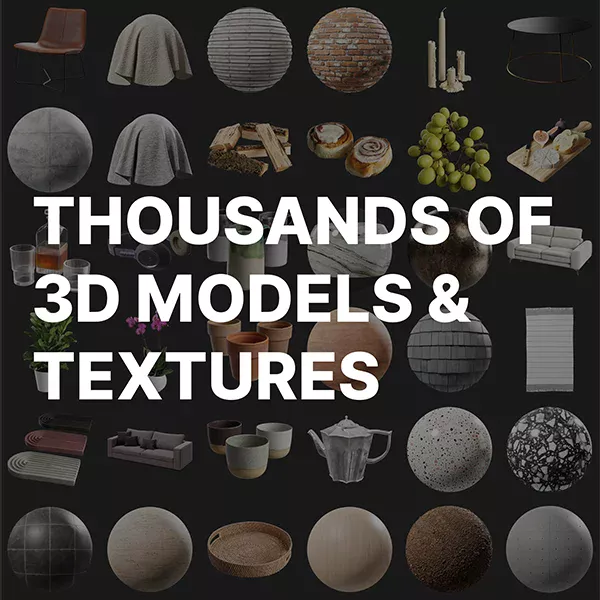
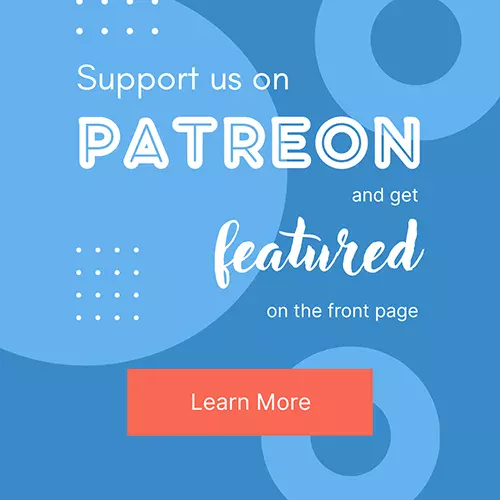
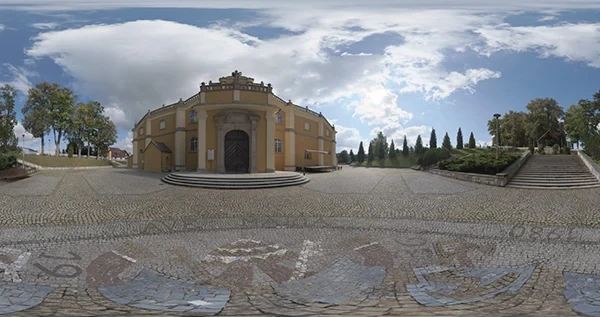





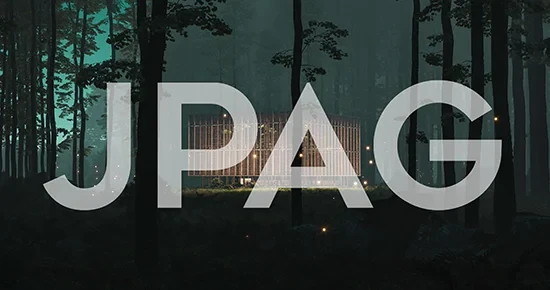
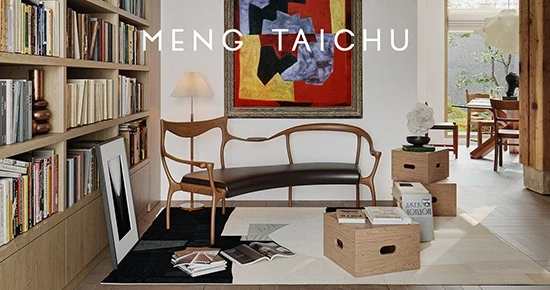

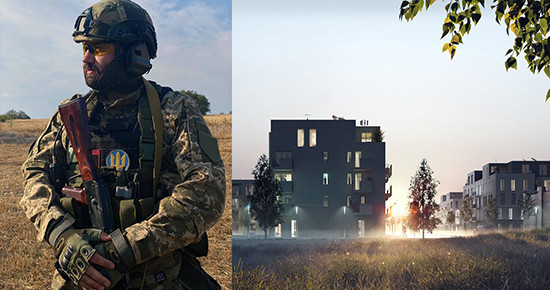
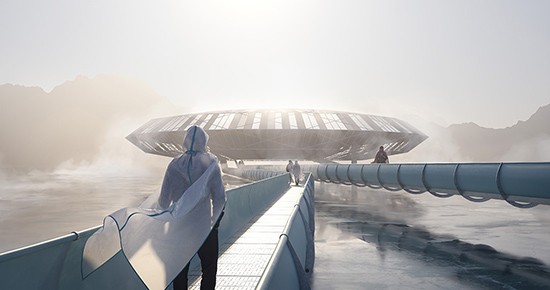
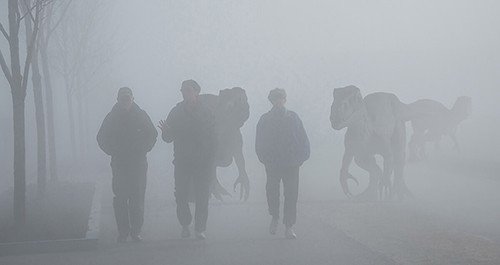
Thank you so much!!